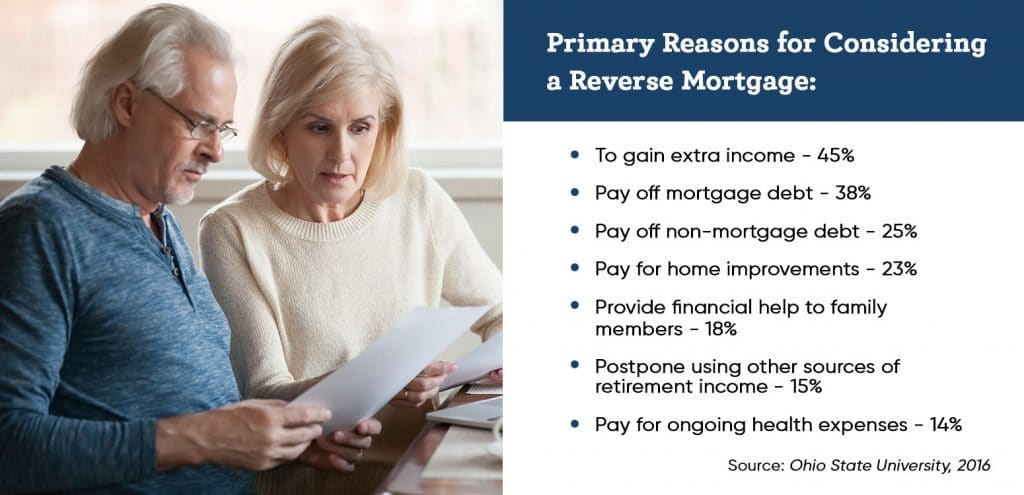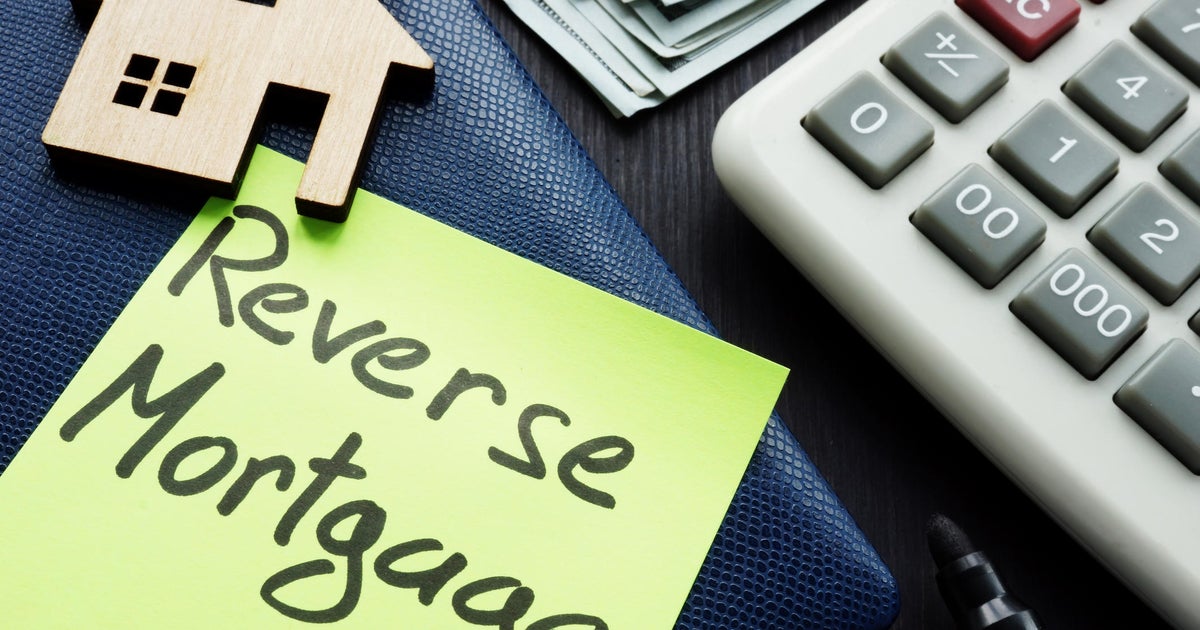Can You Purchase Reverse Mortgage as Part of Your Financial Strategy?
Can You Purchase Reverse Mortgage as Part of Your Financial Strategy?
Blog Article
Empower Your Retired Life: The Smart Way to Acquisition a Reverse Home Loan
As retired life strategies, numerous people seek efficient methods to enhance their monetary independence and health. Among these methods, a reverse home loan emerges as a sensible choice for homeowners aged 62 and older, allowing them to touch into their home equity without the requirement of month-to-month repayments. While this economic tool supplies several advantages, including boosted cash circulation and the potential to cover necessary expenses, it is critical to comprehend the details of the application procedure and crucial factors to consider entailed. The next steps might disclose exactly how you can make an educated choice that could dramatically impact your retirement years.
Recognizing Reverse Mortgages
Understanding reverse mortgages can be essential for property owners looking for monetary versatility in retired life. A reverse home loan is an economic product that allows qualified home owners, typically aged 62 and older, to convert a part of their home equity right into money. Unlike standard home loans, where customers make month-to-month payments to a loan provider, reverse mortgages enable home owners to obtain payments or a swelling amount while keeping ownership of their building.
The amount readily available via a reverse home mortgage depends upon several aspects, consisting of the home owner's age, the home's value, and current passion rates. Importantly, the finance does not need to be paid off up until the homeowner markets the home, leaves, or passes away.
It is necessary for prospective consumers to recognize the effects of this monetary item, including the effect on estate inheritance, tax obligation factors to consider, and continuous obligations related to home upkeep, taxes, and insurance coverage. In addition, counseling sessions with accredited specialists are commonly required to make certain that consumers completely understand the terms and conditions of the lending. In general, an extensive understanding of reverse mortgages can empower property owners to make informed decisions concerning their financial future in retirement.
Benefits of a Reverse Home Loan
A reverse home mortgage offers a number of engaging advantages for eligible property owners, specifically those in retirement. This financial device enables elders to transform a portion of their home equity into money, supplying vital funds without the requirement for month-to-month mortgage payments. The cash gotten can be used for various functions, such as covering clinical expenses, making home enhancements, or supplementing retired life earnings, hence boosting total financial flexibility.
One significant advantage of a reverse home loan is that it does not need settlement till the homeowner leaves, sells the home, or passes away - purchase reverse mortgage. This attribute allows retired people to keep their way of living and fulfill unexpected expenses without the concern of monthly payments. In addition, the funds obtained are typically tax-free, enabling property owners to utilize their money without worry of tax implications
Additionally, a reverse mortgage can offer assurance, knowing that it can function as an economic safeguard throughout difficult times. House owners likewise retain possession of their homes, ensuring they can continue living in an acquainted atmosphere. Ultimately, a reverse mortgage can be a critical financial resource, encouraging retired people to manage their financial resources successfully while enjoying their gold years.
The Application Process
Browsing the application procedure for a reverse home loan is an important action for house owners considering this financial alternative. The check initial stage entails examining eligibility, which typically needs the property owner to be a minimum of 62 years of ages, own the residential or commercial property outright or have a reduced home loan balance, and inhabit the home as their primary home.
Once eligibility is confirmed, home owners should undertake a therapy session with a HUD-approved counselor. This session makes sure that they fully understand the implications of a reverse mortgage, consisting of the responsibilities included. purchase reverse mortgage. After completing counseling, candidates can proceed to gather essential paperwork, including proof of earnings, properties, and the home's value
The following step involves sending an application to a lender, who will assess the monetary and building qualifications. An assessment of the home will certainly also be conducted to identify its market worth. If accepted, the lender will certainly present financing terms, which ought to be examined very carefully.
Upon acceptance, the closing process adheres to, where last records are authorized, and funds are disbursed. Understanding each phase of this application procedure can dramatically boost the property owner's confidence and decision-making pertaining to reverse home mortgages.

Key Factors To Consider Prior To Investing In
Purchasing a reverse mortgage is a considerable financial choice that needs mindful consideration of several crucial aspects. Evaluating your economic requirements and goals is similarly important; figure out whether a reverse mortgage straightens with your long-lasting strategies.

In addition, assess the influence on your current way of living. A reverse home loan can influence your eligibility for specific federal government advantages, such as Medicaid. Seek professional advice. Consulting with a financial advisor or a housing counselor can provide valuable understandings customized to your specific circumstances. By thoroughly assessing these considerations, you can make a more educated decision about whether a reverse home mortgage is the appropriate economic method for your website here retirement.
Making the Most of Your Funds
Once you have secured a reverse home loan, successfully managing the funds becomes a priority. The versatility of a reverse home mortgage permits home owners to use the funds in various means, but calculated preparation is necessary to optimize their advantages.
One key technique is to create a spending plan that details your economic goals and regular monthly expenses. By recognizing required expenditures such as healthcare, residential property taxes, and home maintenance, you can allocate funds appropriately to ensure long-lasting sustainability. In addition, think about making use of a part of the funds for financial investments that can browse around here generate earnings or value in time, such as mutual funds or dividend-paying supplies.
An additional essential element is to keep a reserve. Setting aside a get from your reverse mortgage can assist cover unanticipated costs, offering assurance and financial stability. In addition, seek advice from a monetary expert to explore possible tax obligation effects and just how to incorporate reverse mortgage funds into your general retired life approach.
Eventually, sensible administration of reverse home mortgage funds can enhance your monetary safety and security, allowing you to appreciate your retired life years without the anxiety of financial uncertainty. Cautious planning and educated decision-making will certainly make sure that your funds function effectively for you.
Conclusion
In verdict, a reverse home loan presents a sensible financial approach for senior citizens seeking to improve their retired life experience. By converting home equity right into available funds, people can deal with important costs and protected added financial sources without incurring month-to-month repayments.
Comprehending reverse home mortgages can be vital for property owners looking for monetary adaptability in retired life. A reverse mortgage is a monetary item that allows qualified property owners, typically aged 62 and older, to convert a section of their home equity into money. Unlike typical home mortgages, where customers make regular monthly settlements to a loan provider, reverse home loans make it possible for home owners to receive repayments or a swelling amount while retaining ownership of their home.
On the whole, an extensive understanding of reverse home loans can equip house owners to make educated choices concerning their economic future in retired life.
Seek advice from with a monetary consultant to check out possible tax implications and how to incorporate reverse home mortgage funds right into your general retirement technique.
Report this page